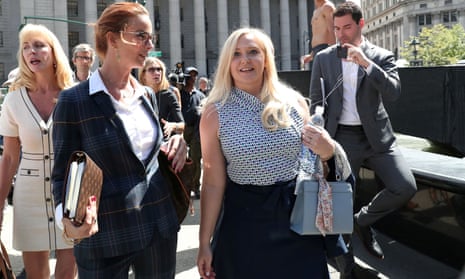Gasping through pain in a sterile hospital bed, Virginia Giuffre scribbled a desperate note: “Only days left… they won’t let me speak.” The Epstein survivor’s haunting words, penned after a devastating car crash, point a trembling finger at Prince Andrew, accusing him of enabling her teenage torment. Imagine her, broken yet unbowed, risking everything to expose a royal entangled in a web of elite corruption. Empathy floods for the girl whose youth was stolen; shock jolts us as her family releases these notes, hinting at a plot to silence her forever. Was the crash a cruel twist or a calculated hit to bury her accusations? As Andrew’s denials unravel under new evidence, one question pulses: Will Giuffre’s final cry pierce the veil of power—or fade into silence?

The harsh fluorescent light of the hospital room cast long, cold shadows across the bed where Virginia Giuffre lay battered but alive. Her hands shook as she clutched a pen, every movement a struggle against the pain radiating through her broken body. With labored breaths and fading strength, she scrawled a final, desperate message on a notepad: “Only days left… they won’t let me speak.” Those chilling words, written in shaky lines, would soon send shockwaves through the world.
Virginia Giuffre’s story had long been one of unimaginable trauma and defiant resilience. Trafficked as a teenager into Jeffrey Epstein’s network, she endured years of exploitation at the hands of the rich and powerful. Among those she accused was Prince Andrew, a member of Britain’s royal family, whom she claimed had enabled and participated in the abuse. For years, she had been dismissed, discredited, and threatened—but she never stopped speaking.

Then came the crash. Late one night in 2025, Virginia’s car was found mangled on a lonely stretch of road. Witnesses reported hearing no screeching tires, no cries for help—just the sudden, violent sound of metal twisting into itself. The official line was “tragic accident,” but the timing raised eyebrows. It happened just days after her legal team announced they had uncovered new evidence—emails and financial records—linking Prince Andrew more directly to her trafficking ordeal.
Lying in that sterile hospital room, Virginia refused to surrender. Friends and medical staff described her as both physically frail and mentally unyielding. Even as she gasped through waves of pain, she whispered to those close to her that she feared “they” would stop her before she could reveal everything. Her handwritten notes, later released by her family, echoed those fears in stark black ink. To the world, they read like the testimony of a woman cornered by forces far bigger than herself.
The release of the notes detonated like a bomb across media platforms. Empathy poured in for the girl whose youth had been stolen, whose adulthood had been spent fighting against a wall of privilege and power. At the same time, shock and suspicion rippled through the public: Was the crash truly an accident, or was it a calculated hit designed to silence her once and for all?
As pressure mounted, Prince Andrew’s carefully maintained defenses began to falter. Legal analysts noted inconsistencies between his past statements and the newly surfaced evidence. The royal family, already bruised by years of scandal, scrambled to control the narrative, issuing carefully worded denials that only deepened public doubt.
Virginia’s final cry—a handwritten note from a hospital bed—has become a haunting symbol of both resistance and vulnerability. It forces the world to confront uncomfortable questions about power, accountability, and the lengths to which some may go to keep their secrets buried.
Now, as investigators and journalists dig deeper, one question pulses louder with each revelation: Will Virginia Giuffre’s last act of defiance finally pierce the veil of royal power, or will her voice—so often dismissed and discredited—fade once more into silence?
Leave a Reply